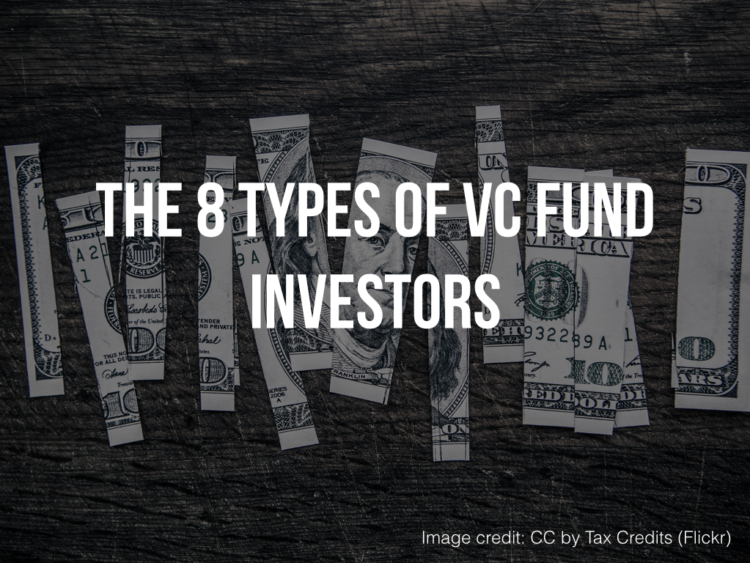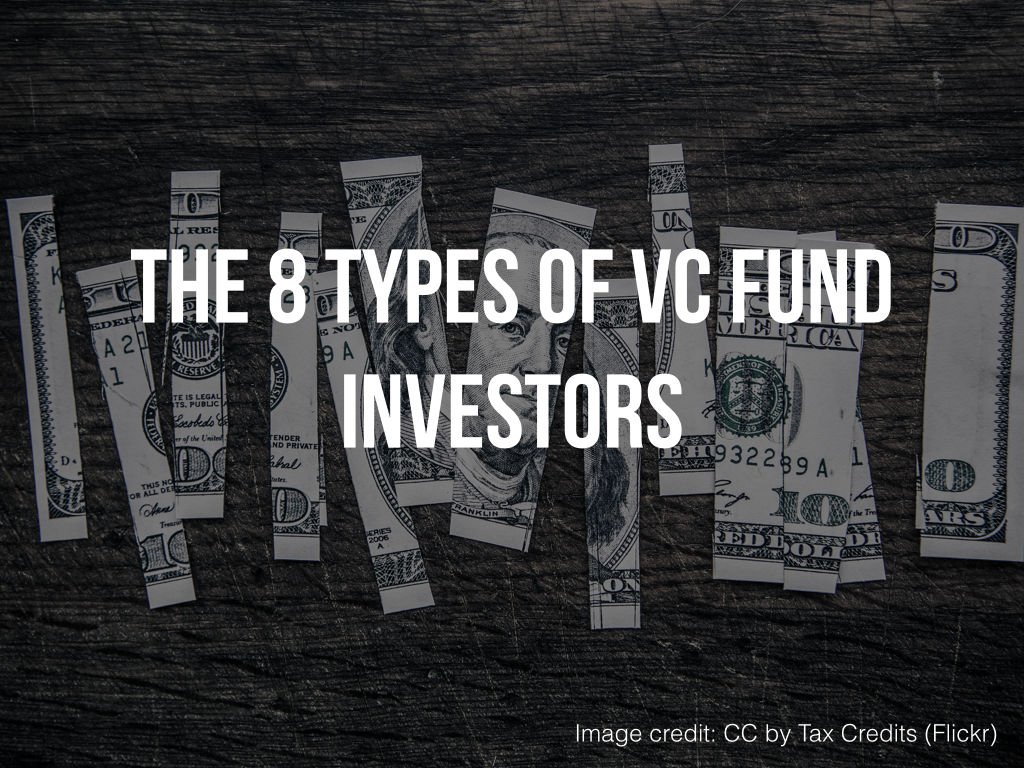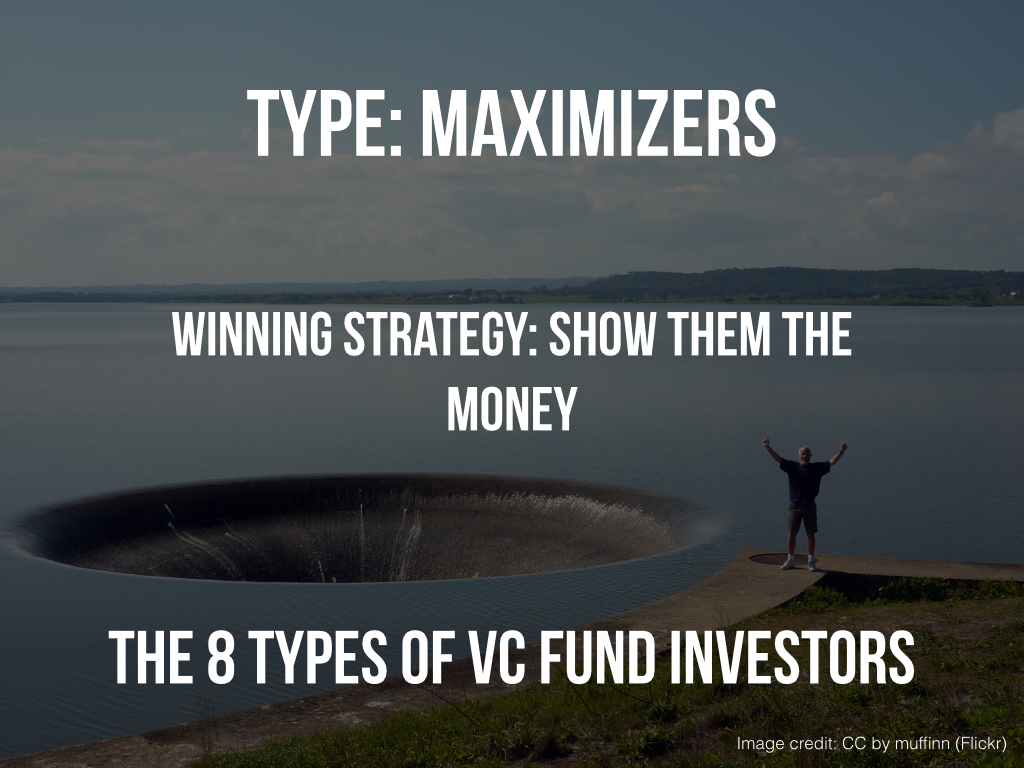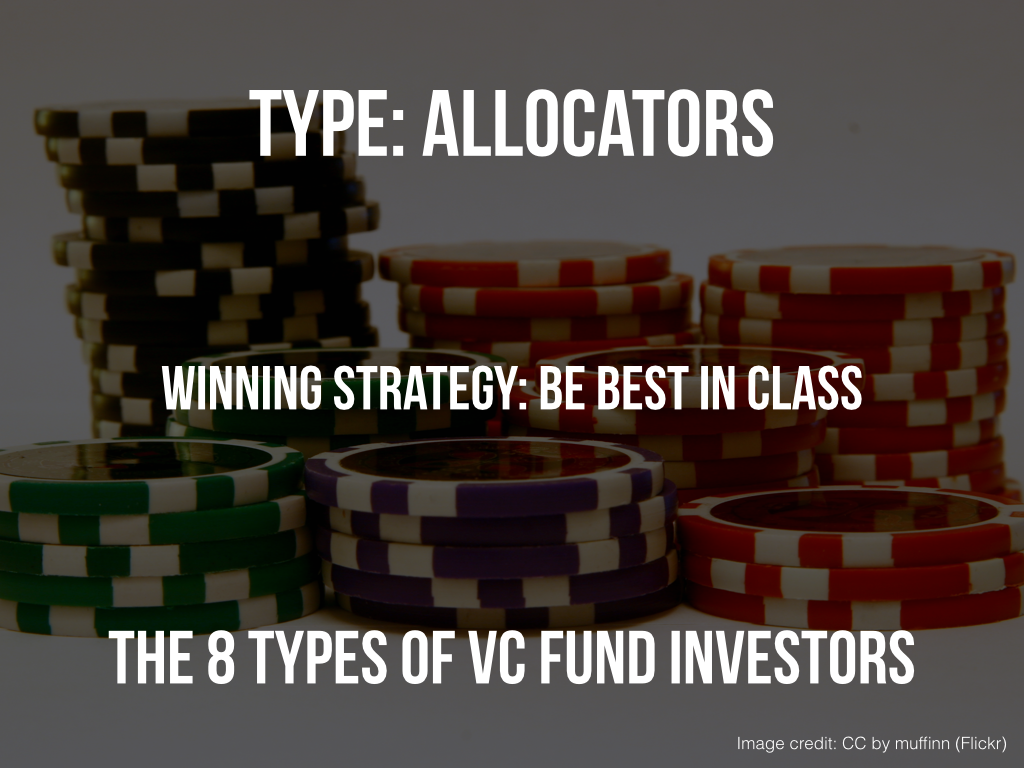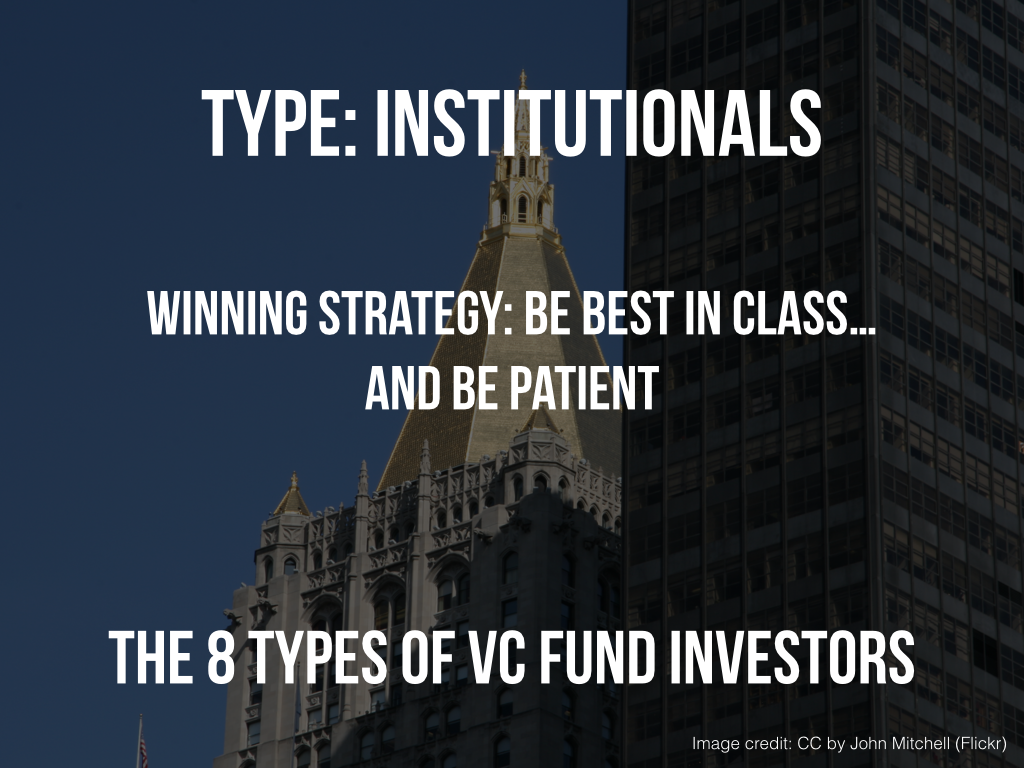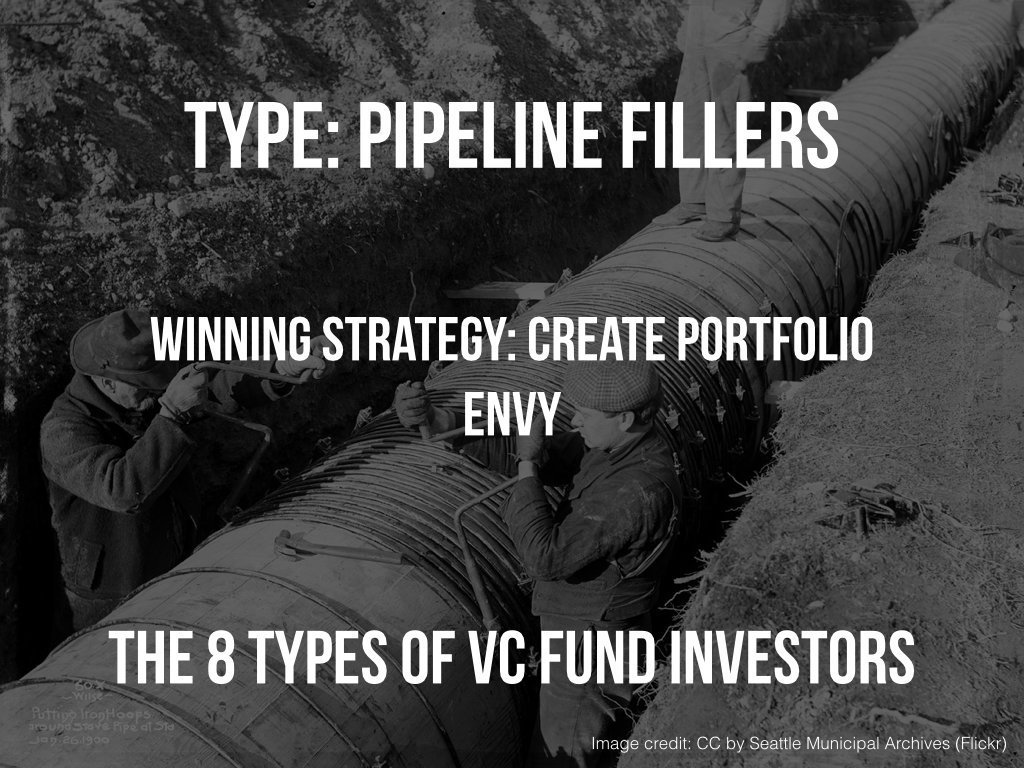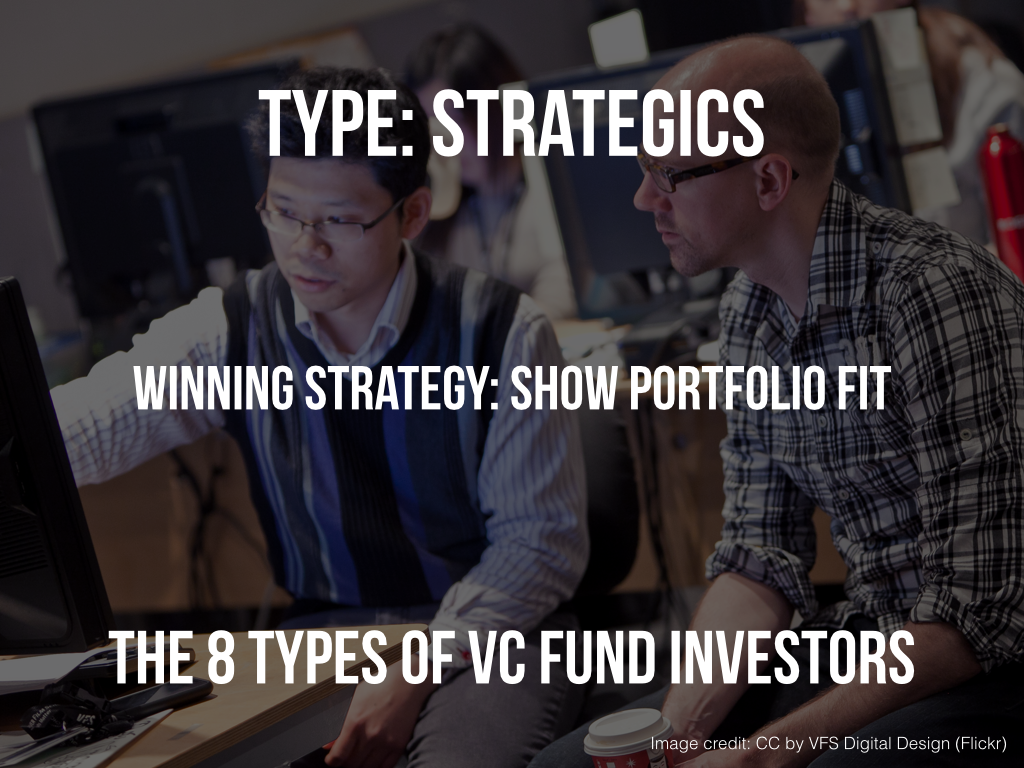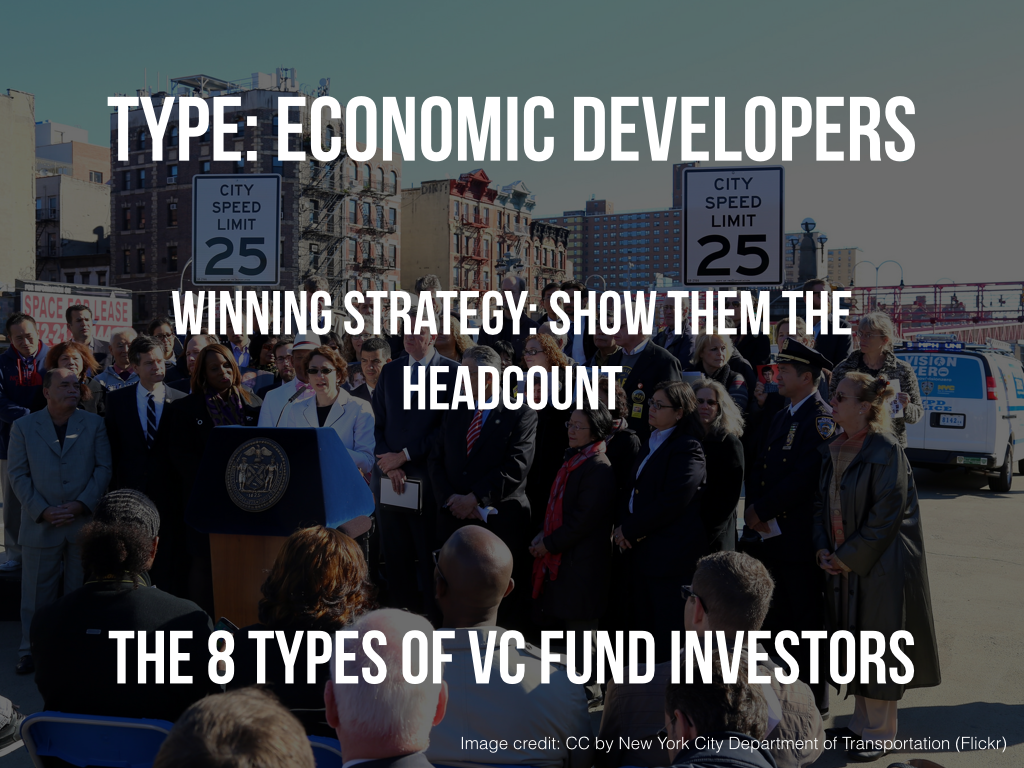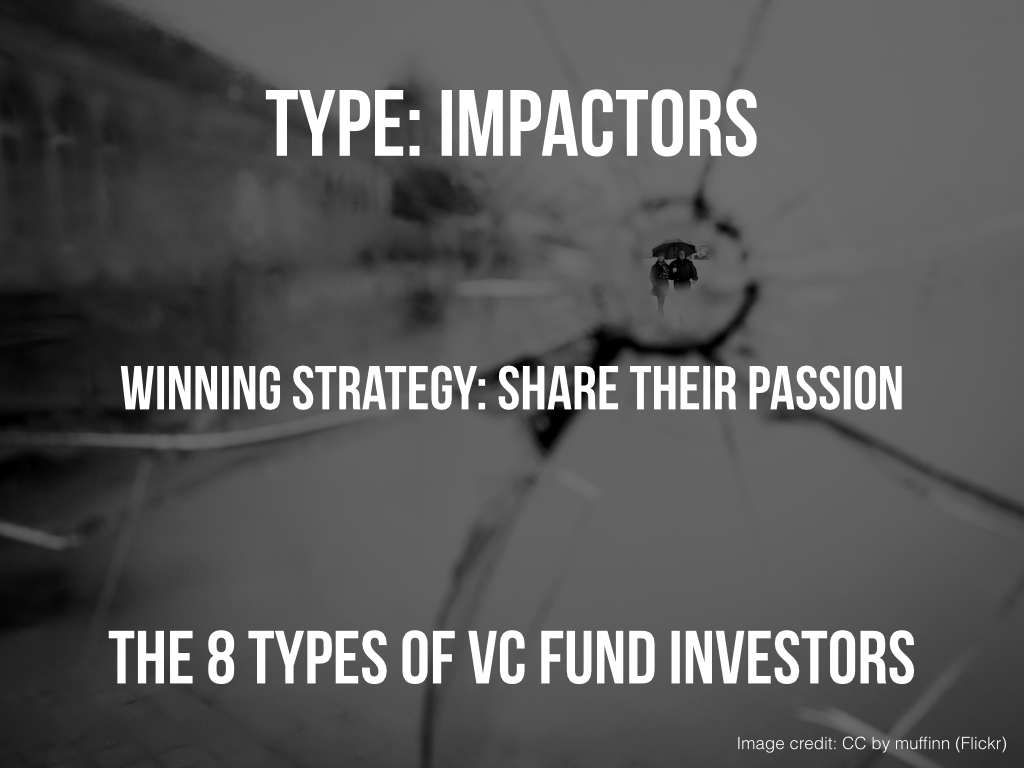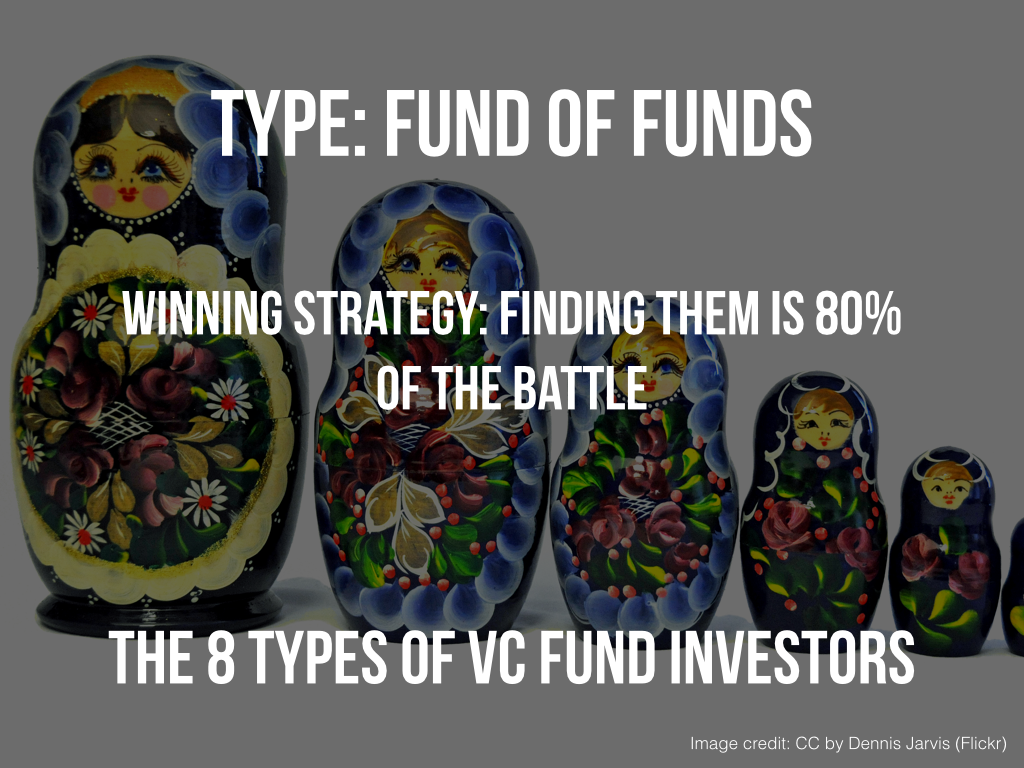I’d raised money for startups before. How different could it be? Just add a zero or two to the ask, right?
It turns out that raising money for a venture fund is a heck of a lot different than raising money for your startup… and certainly not any simpler.
You see, angel and VC investors are all pretty similar, when it comes right down to it: we want you to make us money. Show us good odds (by startup standards) to make a lot of money and we’re in.
Fund investors are far more complicated. Prospective Limited Partners (“LPs”) have a variety of motivations and each type of LP needs to be approached differently. Here are the eight different types of LPs I have encountered in the course of raising money for the fund DreamIt uses to invest in the startups we accelerate:
- Maximizers
- Allocators
- Institutionals
- Pipeline Fillers
- Strategics
- Economic Developers
- Impactors
- Fund of Funds
CLICK HERE TO SEE ALL 8 TYPES OF VC FUND INVESTORS
Acknowledgements: I’d like to thank my colleagues who contributed valuable feedback on earlier drafts of this piece including Skyler Fernandes (Simon Venture Group), David Teten and Katie Bluhm (ff Ventures), Sumeet Shah (Brand Foundry), Amanda Nelson (TCP Ventures), Jorge Torres (VenSeed) and Steve Berg (Antecedent Ventures). In case you are wondering, I’ve opted to list them in the order with which they responded to my request for feedback in the (likely misguided) hope that this will encourage them to answer my emails even more quickly.
Type: Maximizers
Winning strategy: Show them the money
Maximizers are the most like angel investors. They are sector agnostic; they don’t care if the investment is in real estate, a cupcake shop, a tech startup, or your fund: you are competing with every other opportunity out there for their investment dollar. They just want the biggest bang for their buck. To win, you need to show that your fund’s combination of risk, reward, and time frame is the best. Don’t waste too much time on strategic differentiation. Cut to the chase and stress the overall performance of your sector vs. other sectors, your team’s past performance and other relevant experience, and (if you’ve already started investing) the performance and potential of the companies already in your fund’s portfolio.
Type: Allocators
Winning strategy: Be best in class
Allocators are typically individuals or family offices who take a top-down view of their portfolio and have decided that they want a certain amount of “exposure” to VC. You have to show them that you are the best option in your venture asset class. It often helps if you can redefine the class somewhat. Make it narrower and it’s easier for them to see how you come out on top. For instance, DreamIt doesn’t simply position itself as a VC fund investment. We are angel stage investors and in that extremely early stage, there aren’t many alternatives; there are just a handful of other top accelerators with funds. Beyond those, the Allocators’ only other options are second tier accelerators and direct angel investing. Allocators are allergic to the former and don’t have the time or skills for the latter.
Note that while you don’t have to sell your sector to Allocators, it does help if you can show that your sub-sector outperforms other investment classes. Fortunately for us, overall VC returns for the past decade plus have been pretty dismal, whereas early stage / angel returns have been stellar.
Type: Institutionals
Winning strategy: Be best in class… and be patient
Institutionals (e.g., pension funds, endowments, insurance companies) are essentially very large Allocators. They are run by professionals and tend to have standard (and often slow and painfully thorough) due diligence processes, in part because they tend to be more conservative and focus heavily on preserving capital. Their challenge is to keep a lot of money at work at all times. Small investments are the same amount of work to assess for them as large ones are, but even super returns just don’t move the needle for them unless their initial investment is big enough. At the same time, most institutions don’t want to represent more than 10% of your fund. So if their minimum check size is $5M and you have a sub $50M fund, you are likely wasting your time.
One caveat: pre-existing relationships are very important to Institutionals, so if you expect that your next fund will be in their strike zone, it pays to set aside some time to meet them anyway and to start building the relationship.
Type: Pipeline Fillers
Winning strategy: Create portfolio envy
Pipeline Fillers are looking for deal flow. They may be later stage VC or PE funds who know that it is extremely hard to get into the hottest deals if you are not already on the cap table. Or they can be large family offices or corporations who like to invest in particular industries but don’t have the skills, connections, resources, or inclination to invest in raw startups. For Pipeline Fillers, you need to understand their investment focus first, and then show how your portfolio matches their need. You also want to highlight how they will get access to your portfolio. At DreamIt, for instance, we stress the early introductions we make, such as invitations to session kickoff events and “LP Day,” where our investors get a preview of the newest DreamIt startups well before the general public meets them on Demo Day. We also point out that, as a relatively small fund, DreamIt rarely invests beyond the B round, which leaves a lot of pro rata investment rights for later rounds that we can make available to our LPs.
Type: Strategics
Winning strategy: Show portfolio fit
Strategics want to know what disruptive technologies are just over the horizon. They are often corporations who want an opportunity to partner with the best startups before their competition gets to them. They may even want a chance to make some targeted investments and/or acqui-hires. Portfolio fit is critical here. Selling a generalist fund is difficult because only a small share of the startups will be relevant to that particular Strategic, but pitching a FinTech focused VC fund to a bank, or an IoT/smart device fund to a large electronics conglomerate, makes a lot of sense. While return does matter, they are largely buying insight, so focus your pitch more on your deep industry knowledge and your access to disruptive seed stage startups in that space.
Type: Economic Developers
Winning strategy: Show them the headcount
Sometimes, you may even pitch your fund to the government entities that are first and foremost Economic Developers. Increasingly, the SBIC, states, and even a few of the larger cities have allocated some of their economic development budget to VC investment. This is an entirely different kind of conversation. They want to know how many jobs you will create in their region, so be prepared to talk headcount, not returns. Also, there will be strings attached – limits on non-region investments, co-investment requirements, etc. You may even need to set up a side fund for their investment to exclude startups that don’t meet their mandate. Oh, and don’t expect them to move quickly, either.
Type: Impactors
Winning strategy: Share their passion
Impactors make up a similar but separate group of potential investors. These may be government entities or non-profits with social goals. Often referred to as double bottom line investors, Impactors want to invest in particular types of ventures, such as minority or veteran led businesses, or startups targeting environmental or anti-poverty causes. Impactors vary from wanting to maximize profits while constraining their universe of investments, to those that meet their mission, to those who want to maximize their impact on their primary social metric while at least meeting a minimum target return. Impact investors are typically a poor fit for VC LPs, unless your VC fund was constructed specifically with their goal in mind, or predominantly targets a closely related industry, such as environmental impact investors and a clean tech fund.
Type: Fund of Funds
Winning strategy: Finding them is 80% of the battle
The last category is Fund of Funds. Their value proposition to their LPs is that they can pick the better VC funds, justifying the fees they charge. These fees apply after the underlying VC funds take their fees. There’s been a mini revolt against “Fees on Fees,” so these guys are a vanishing breed, but if you do meet one, your pitch should be similar to the one you use for Institutionals, only stressing returns instead of capital preservation. Fund of funds may also be looking to slot your fund into their pre-defined set of target buckets, so take some time to figure out what their buckets are and show where you fit in. Plus, if your fund doesn’t quite fit cleanly and neatly into their framework, that’s one strike against you. Lastly, because of the fee issue, be prepared for the Fund of Funds investor to ask for a discount of your management fee, carried interest, or both.
So the next time you sit across from a VC and think wistfully about how much nicer it must be to be the one writing the checks, remember this: every few years, we go through the same wringer as you do and it’s no picnic for us either!


